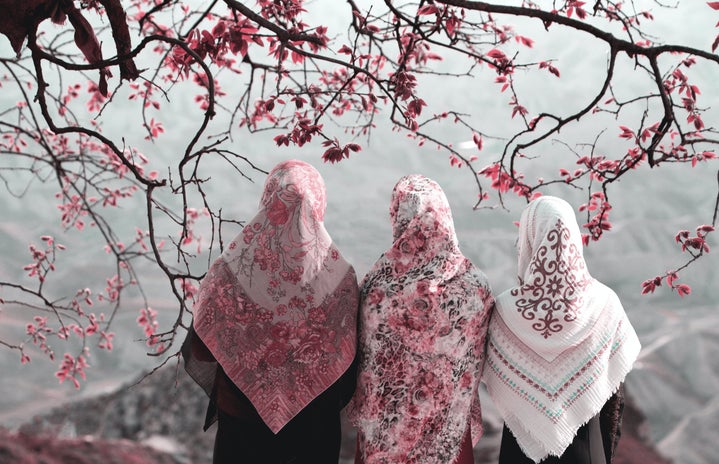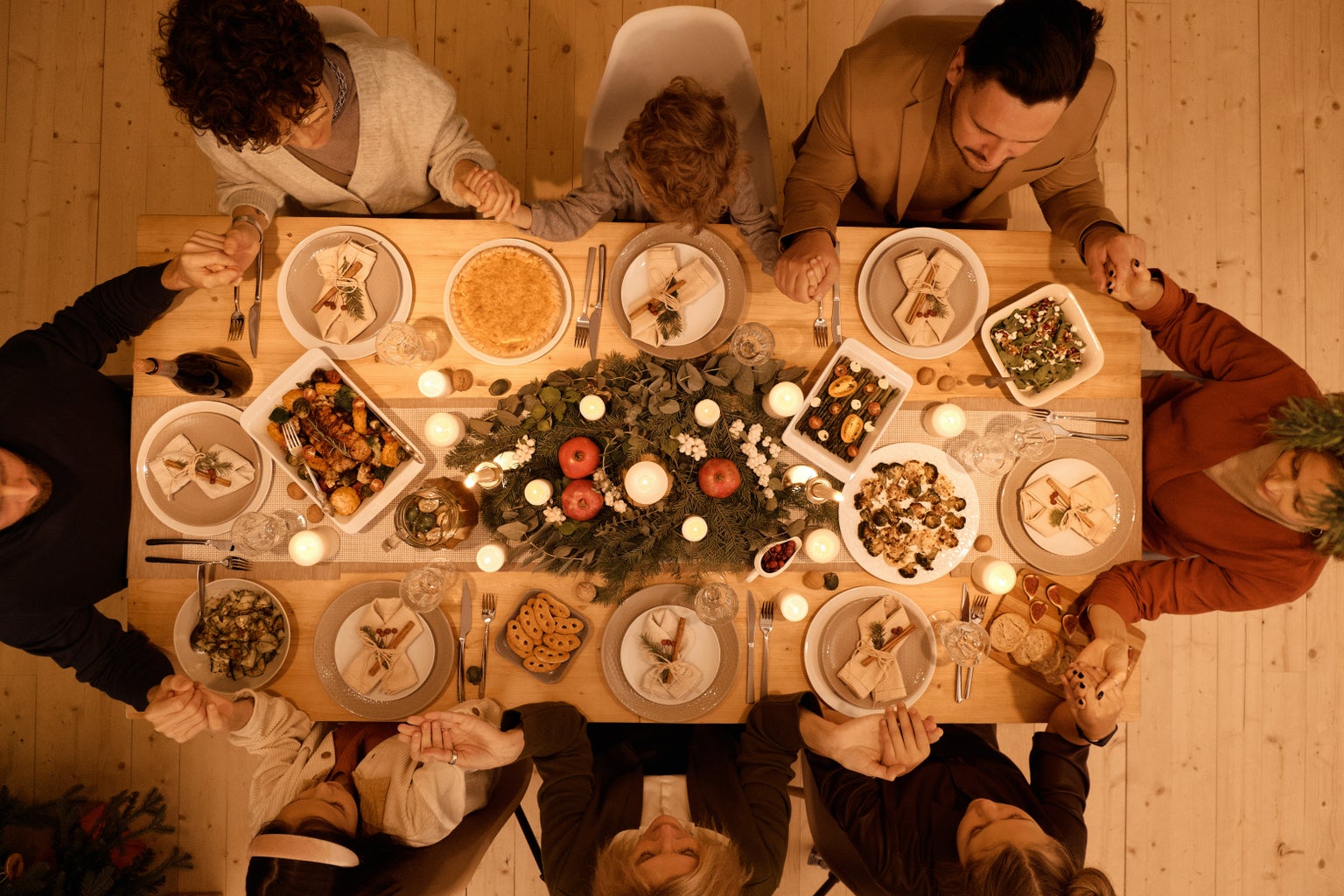Ramadan is finally here, and with it, the spark of this holy month may feel strange to students far away from their families and their homes. I, myself, struggled with that feeling my first year of joining Richmond University, but as you get used to it and find places and people that make you feel more at ease, it starts to feel more exciting by the minute. Ramadan will always be special for us, whether it is because of how warm it feels with your family or because of that feeling when you’re in an atmosphere of community and belonging. As a girl from Morocco, Ramadan is a festival for us; all the families prepare for it months prior, and the happiness of fasting with everyone around you and feeling like you are a part of something beautiful and warm is why I will be giving you tips to make your Ramadan as magical as it was when you were around your loved ones and to have a balance between focusing on your studies and your duties as a Muslim in Ramadan
IFTAR
My first year living away, as exciting and new as it was, was very unproductive, I would not cook for myself even if my life depended on it; I would either go to my friend’s place and eat with them or I would spend money every day on uber eats, but as Ramadan had approached, I did not know what to do. I felt so weird to not be with my family, surrounded by a huge table stacked with amazing food. But as the days started getting by, I realized how stupid I was being. It is not that big of a deal at all; you just need to give yourself time and just get up. Look up recipes to cook, go get your ingredients, and prepare what you want, It doesn’t matter if you’re good at cooking or not; you’ll get better in time. Also, don’t feel disappointed or homesick about how your iftar has changed, because it will just make you discouraged in Ramadan and you don’t want that, trust me. Instead, go break your fast around your friends or eat in a restaurant once a week. Just do what you like doing and be gentle with yourself.
Also, dates are your best friends in Ramadan; not only is it sunnah, but they are the ultimate healthy and good source of energy that you eat to break your fast and in suhoor as well, so always have them with you whether you’re home or you’re in campus when the maghrib is due.
PRAYING
With an empty stomach, it can be very hard to do anything without feeling tired, so most of the students struggle to balance their duties in university and prayers on time. For that, all you must do is organize yourself, Fajr must be prayed at dawn
so when you wake up at 4 to eat, just pray your 2 rakat and then go eat whatever you want, After that, a lot of people think of going back to sleep but I will disagree with that since you will miss out on getting done stuff that you would for sure feel too tired to do during the day. As for duhr and asr, try to pray them on time, If you are on campus, all you have to do is either ask the front desk for the prayer room and they’ll show it to you, or go to the common room in front of the cafeteria. As a nonhijabi girl, I always remember to get my prayer clothes and prayer mat with me to try not to miss my prayers so try not to forget that. It might feel intimidating to pray in public for some people but just don’t overthink it. It is something that should be appreciated so don’t hold back and let yourself skip your prayers because of that.
SUHOOR:
Suhoor is probably the most important meal in Ramadan for me, so don’t sleep through it or skip it, as your day will only get more tiring. Also, many people might think that as they won’t eat throughout the day, they need to just eat a lot of heavy foods so they can keep their stomach full. I disagree with that. in suhoor, you should focus on light but nutritious food like fruits, vegetables, dates, and yogurt. My go-to suhoor meal is a bowl of fruits, granola, or unsalted yogurt and dates, of course. With a healthy suhoor, your stomach will be relaxed and light and you will feel hungry during the day as well, if you are a coffee-addicted girl like me, drink your coffee so you don’t crave it later.
Also, if you get up at 4 am to eat already, don’t go back to sleep, trust me. Instead, do Pilates or yoga or do your university work as you’re still energized, and as the days go by, you will get used to it and start getting more flexible with your Ramadan routine.
ADDITIONAL TIPS
Finally, I just want to tell all the girls in here that Ramadan is not just about fasting from food and water; it is a month of forgiveness, positivity, and faith. It is the only month where we can dedicate our days to our creator and just cleanse ourselves from all the sins surrounding us. So, enjoy Ramadan and practice it to the fullest, give out food to the needy, smile more often (it’s Sadaqah), talk to your family, read the Quran at least one page a day, and perform random acts of kindness, even if it’s just a compliment or a kind word. Richmond University is also a lovely campus to be on Ramadan since it’s so diverse and you can find a lot of Muslim people on campus that you can get to know because the more, you’re well surrounded in Ramadan, the less homesick you’re going to feel.
Laylatul Al Qadr and Eid:
Laylatul Qadr, also known as the Night of Power, is considered to be better than a thousand months. The Night of Power, which falls on an odd night during the last 10 nights of Ramadan, is the ideal night for making dua. It is the night when Allah SWT forgive all our sins and accepts all our prayers. the duas we make on Laylatul Qadr are far more powerful. So here are some essential duas to make on the night of power and on Eid al-Fitr to get all your prayers heard and your sins forgiven.
” Oh Allah, you are the most forgiving, and you love to forgive, so forgive me.”
“O Allah! You are my Lord! No one has the right to be worshipped but You. You created me, and I am Your slave, and I am faithful to my covenant and my promise as much as I can. I seek refuge with You from all the evil I have done. I acknowledge before You all the blessings You have bestowed upon me, and I confess to You all my sins. So, I entreat You to forgive my sins, for nobody can forgive sins except You.”
As for Eid, I need to mention that living abroad means learning how to adapt to foreign environments, especially when our holidays might not be recognized in western countries. So sometimes you may have to spend your holidays in university or drafting an essay. And that should not upset you or distance you from your environment. It is still a holiday for you, so make the most of it; wear your gorgeous traditional clothes, show it off, and OWN it. Share your culture with your friends, whether it is a quick lunch in between classes or a late Eid party with all your loved ones and friends in London. Finally, for Muslim girls studying abroad, Ramadan brings challenges and opportunities for development. Enjoy cooking iftar meals, visiting local restaurants, and cherishing the company of friends during a special time. Prioritize prayers, even if it involves adjusting to unfamiliar surroundings, and fill your body with light, nutritious suhoor meals. Remember that Ramadan is more than just fasting; it is a time for spiritual reflection, acts of generosity, and connecting with others. Stay confident in your identity and culture as Laylatul Qadr and Eid get closer. Do not let loneliness or unfamiliar surroundings dampen your spirits; boldly celebrate your customs and share them with your community. In conclusion, by accepting the hardships of Ramadan abroad with confidence and resilience, you can make this experience extremely empowering.
I Hope You girls have a beautiful Ramadan, xoxo!!



